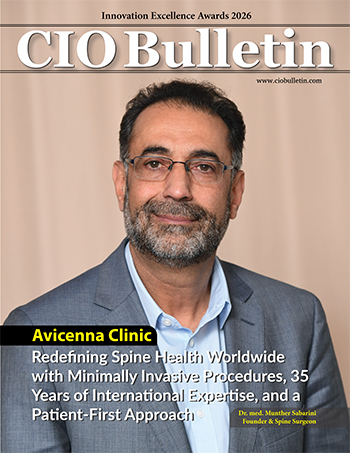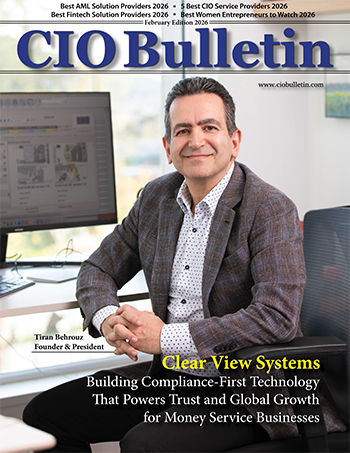Home Platforms News Planning for the Future: How t...
News

CIO Bulletin
02 October, 2025
If you’ve completed an undergraduate program in a business-related area and are now exploring your next move, project management offers a clear and direct path forward. It lets you apply your understanding of planning, coordination, and resource handling in a way that leads to measurable outcomes. This path doesn't require a complete shift in focus. Instead, it builds on what you already know. You can guide teams, track progress, and make decisions that keep things moving. Today, there are graduate programs that help you gain the tools you need without stepping away from your current job. Many are structured for remote learners, making them practical and accessible.
Here’s how you can pursue a career in this field:
Why Project Management Appeals to Business Graduates
With a background in areas like operations, strategic planning, or logistics, you're already familiar with the key parts of project work. You know how to create a plan, manage timelines, and work across departments. These are the same foundations used in real-world project roles. What makes this path appealing is that it gives structure to your work and helps you move into positions where you can take the lead on planning and delivery. For many graduates, it’s a natural next step that connects earlier learning with real responsibility.
Explore Graduate-Level Learning to Grow Your Skills
One of the most accessible options for advancement is an advanced degree in project management. An MBA in project management online offered at Southeastern Oklahoma State University helps students move beyond general knowledge and develop a focused approach to planning and delivery. It covers areas such as scheduling, scope development, team communication, risk control, and quality planning. The format is remote, but the learning experience is active and hands-on. Faculty members bring experience from the field and provide practical examples that relate directly to real project environments.
Students in this program complete coursework that mirrors situations they’ll face in the workplace. They use project management software, analyze case studies, and create action plans based on project scenarios. The learning structure helps participants gain confidence in handling large tasks, meeting deadlines, and working with cross-functional teams. Because the program is entirely online, you can complete it from wherever you are without putting your current job on hold. This option is ideal for those looking to move into more strategic roles while continuing to gain real-world experience.
Skills You’ll Need to Succeed in Project Management
Project managers handle more than just timelines. They deal with communication, resource allocation, stakeholder expectations, and sudden changes in direction. To succeed, you’ll need to be adaptable, organized, and clear when giving instructions or updates. Being able to manage priorities and stay calm under pressure matters just as much as your technical understanding. A good graduate program helps you sharpen these habits through team projects, mentor input, and feedback on your work. These are the habits that help you run projects without delays or confusion.
Common Roles You Can Apply For After Graduation
Once you complete a graduate-level program in this field, you'll be able to take on roles that focus on planning, coordination, and delivery. These may include managing internal initiatives or working on external client projects. You’ll be expected to lead meetings, set priorities, track milestones, and resolve conflicts that could slow progress. These positions exist in many industries, such as logistics, construction, and product development. Depending on the organization, the work may be done on-site or through hybrid or remote setups, giving you a wider range of options.
Certifications That Pair Well with a Project Management Degree
Completing a project-focused graduate degree gives you a strong academic foundation, but adding a recognized certification can enhance your profile even more. Some certifications are widely respected across industries and show that you meet international standards. Graduate programs often include similar material in their coursework, which makes certification prep easier. Having both a degree and a recognized credential can help you stand out when applying for roles or seeking promotions.
How to Build Real-World Experience While You Learn
While studying, gaining practical experience can make a big difference. Some learners take on freelance projects or volunteer for project roles within their current workplace. Others use part-time roles or internships to apply what they’re learning in real time. Many graduate programs also include assignments based on real scenarios. These allow students to make decisions, solve problems, and evaluate outcomes before entering the job market. Some courses even simulate team environments, so you learn how to collaborate and respond to shifting priorities just like you would on an actual project.
If you're ready to apply your business background in a role that involves planning, coordination, and delivery, project management is a smart and direct path. Through a focused graduate program, especially one built for remote learners, you’ll gain the tools and experience to guide projects with confidence. You’ll learn how to stay organized, communicate clearly, and lead teams through complex tasks. When paired with real-world practice and strong connections, this kind of training puts you in a good position to grow. With a plan in place and the right support, your next step can lead to long-term success.

Insurance and capital markets







